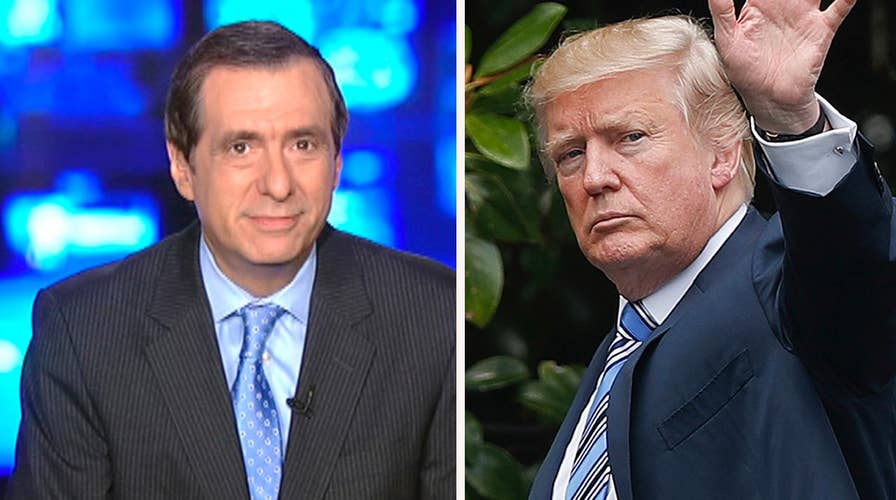Kurtz: The JPMorgan view of Washington
'MediaBuzz' host Howard Kurtz weighs in on Jamie Dimon blaming the media for accepting Washington D.C. gridlock
Jamie Dimon, the JPMorgan Chase CEO, is unloading on Washington gridlock—and pointing a finger at the press.
“Why you guys don’t write about it every day is completely beyond me,” Dimon said on an earnings conference call.
So I thought about it: Why don’t we?
Well, for one thing, the Beltway paralysis has been going on for so long that it would be like writing that D.C. is unbearably humid in July.
It was true in George W. Bush’s second term, when he couldn’t even get a committee vote on his Social Security privatization bill. It was true for the last six years of Barack Obama’s administration, after he shoved through the health care bill on a party-line vote. And it’s been true for the first six months under Donald Trump, whose strategic and policy forum includes Dimon as a member.
So when Democrats are dragging their feet on Trump’s agenda, just as Republicans did on Obama’s, there’s a tendency to throw up our hands and say it will always be thus.
At the same time, we in the media have written and talked about gridlock quite a bit, but usually through the prism of assessing Trump.
As in: Why hasn’t he been able to pass major legislation when his party controls both houses of Congress?
The president was able to get his ObamaCare revamp through the House, but the Senate keeps postponing a vote, most recently because John McCain is recovering from surgery. The Republicans don’t have the votes, and that reflects a deep divide in the party.
Dimon says that “this administration can make breakthroughs in taxes and infrastructure and regulatory reform.” And he may be right. But the White House has yet to unveil a tax cut bill or an infrastructure measure.
And the Democrats are having their own identity crisis.
A Washington Post/ABC poll, which has Trump declining six points to 36 percent, contains some clues. About twice as many Americans prefer ObamaCare to the Republican plan to replace it, 50 to 24 percent.
But there is a major warning sign for the Democratic Party as well: “Some 37 percent say the party currently stands for something, while 52 percent say it mainly stands against Trump. Even among Democrats, over one-quarter say their party primarily stands in opposition to Trump rather than for their own agenda.”
It’s hard to argue when Dimon says “we have become one of the most bureaucratic, confusing, litigious societies on the planet. It's almost an embarrassment being an American citizen traveling around the world and listening to the stupid s*** we have to deal with in this country.”
And most people would probably agree when Dimon argues that “at one point, we all have to get our act together, or we won’t do what we’re supposed to do for the average Americans.”
That’s a view that many businessmen have, which fails to take into account our more polarized parties, more polarized districts, more polarized constituents and more polarized media. None of them pays a price for digging in their partisan heels.
Perhaps the gridlock gets broken if Trump and the GOP are stymied and are forced to make deals with Democrats. But no one should hold their breath.





